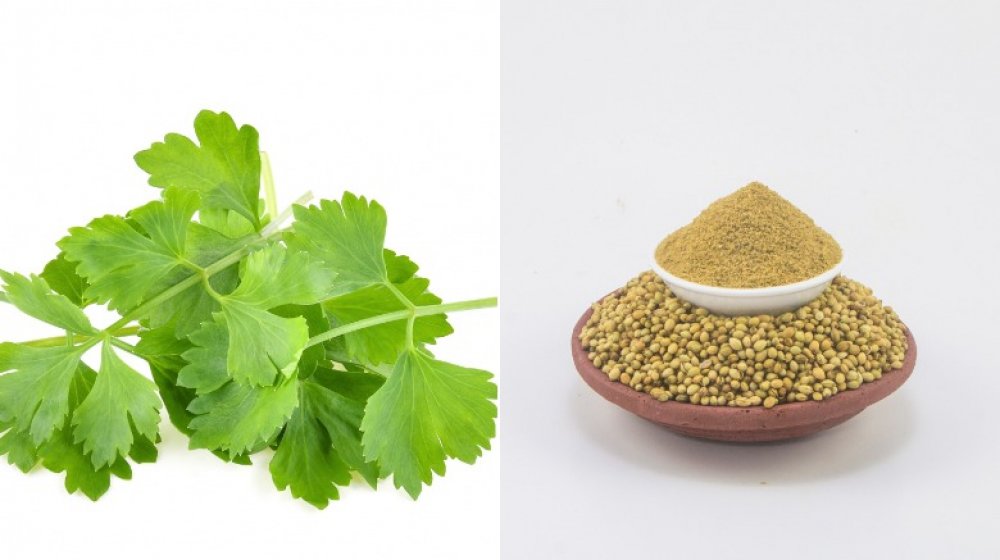What's The Real Difference Between Cilantro And Coriander?
Cilantro and coriander — sometimes the names seem to be used interchangeably, but are they actually the same thing? Or are they two separate herbs? Well, the answer is no — but also no.
How can this be? What's Cooking America explains that while cilantro and coriander come from the same plant, Coriandrum sativum, cilantro is the term used for the leaves and stalks and the plant itself while coriander describes the dried seeds of that same plant used as a spice.
Healthline further clarifies that this distinction in terminology primarily applies to North America. In the rest of the English-speaking world, coriander is used for both the plant and its seeds, although a recipe using the latter will usually include the word "seeds."
Cilantro and coriander have different flavors
Cilantro is an herb that some just love, while others absolutely hate — and, as it turns out, there's a biological reason for that. There's actually something in our DNA that determines how cilantro tastes to different people. Cilantro has a taste that can be described as refreshing and citrusy — unless you have the cilantro-hating gene, in which case you're more apt to liken the flavor to that of soap or dirt.
Coriander, on the other hand, tends to inspire less polarizing feelings. Its seeds are usually roasted before using and have a warm, spicy fragrance and flavor.
Cilantro and coriander are used in different dishes
Cilantro often features in Latin American and Asian dishes. It is frequently used as a garnish or added after a dish finishes cooking, since its flavor does not hold up to prolonged heat. Some of the dishes that frequently include cilantro are salsa, guacamole, and pho. Coriander seeds, which are used whole or ground, are more typically used in curries and curry powder, pickled vegetables, sausages, soups, and stews.
Cilantro and coriander are not interchangeable, nor can one be substituted for the other. Possible cilantro substitutes include Thai basil, Italian parsley, and mint, whereas coriander is somewhat similar to, and may be substituted for, cumin.


